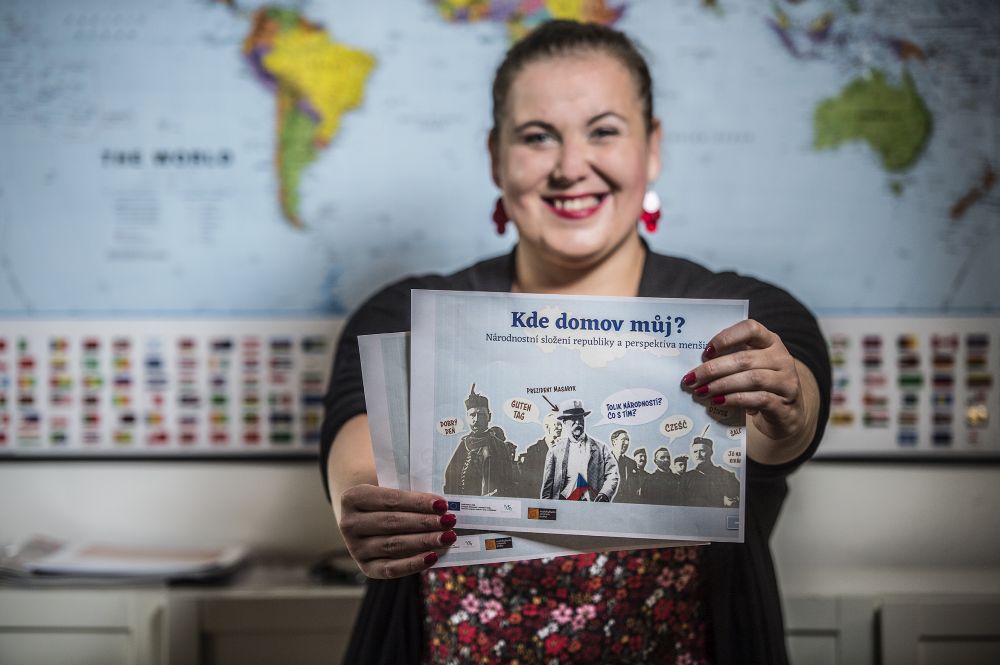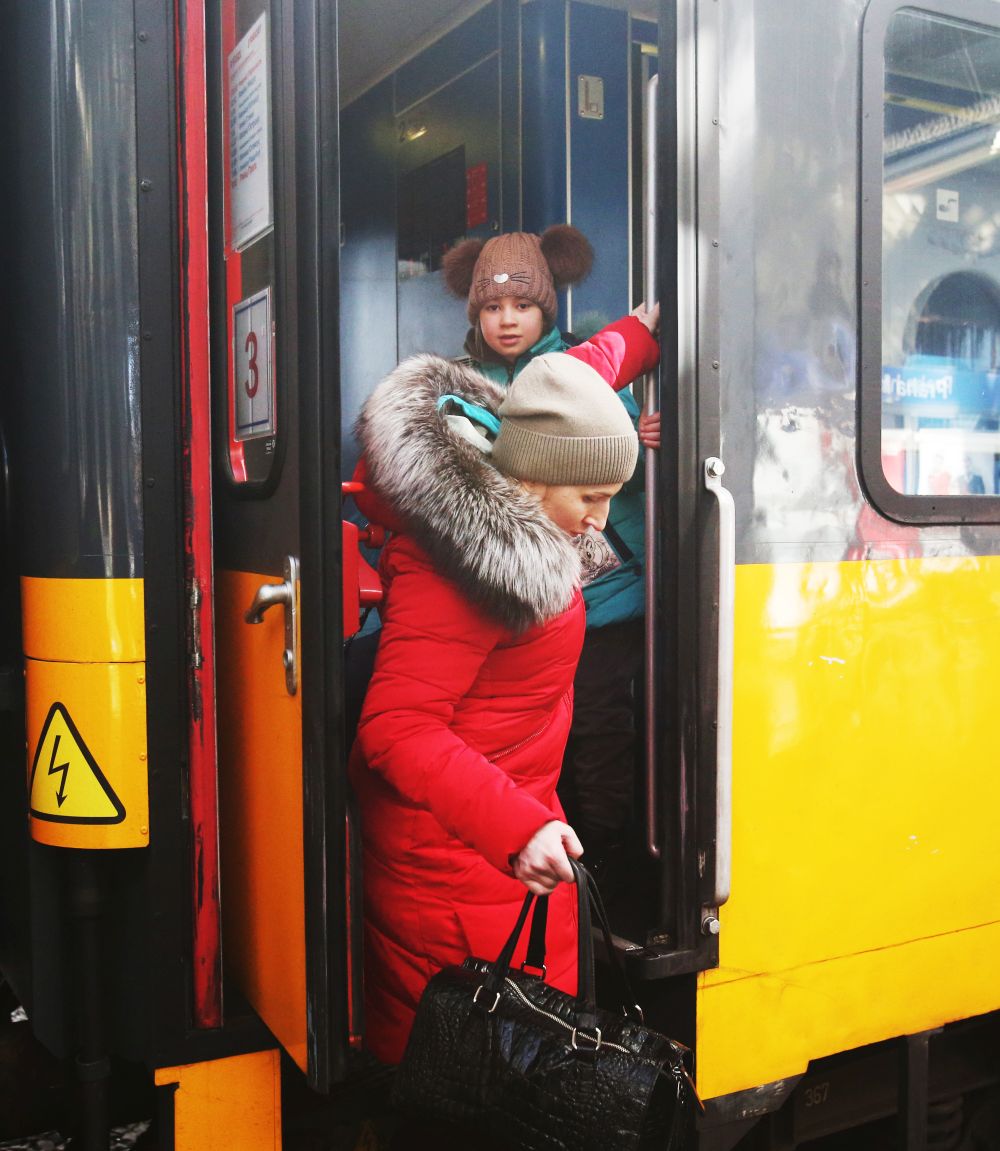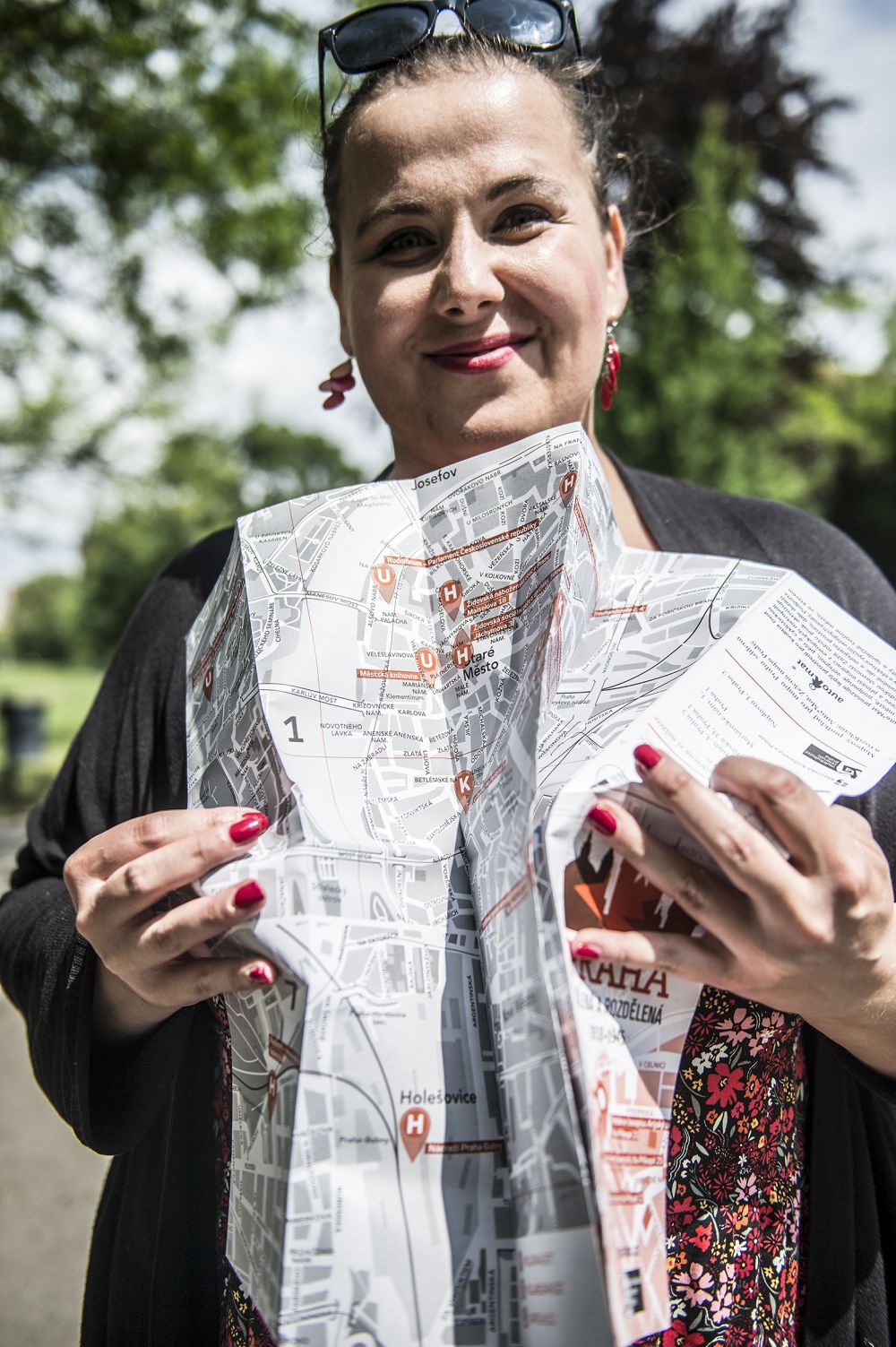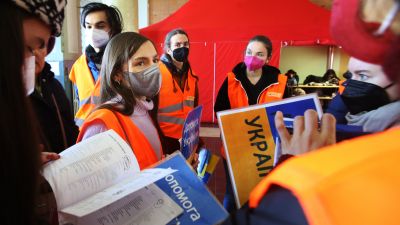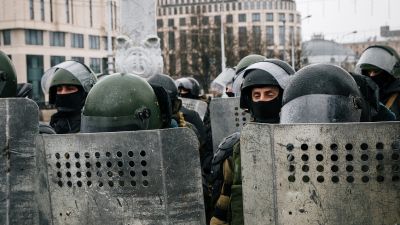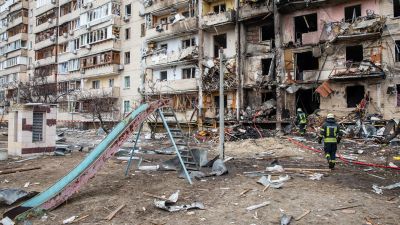Zuzana Schreiberová is a graduate of the Faculty of Humanities at Charles University and director of the Multicultural Centre Prague (MKC Prague). During her studies, she volunteered and helped people fleeing the war in Syria and Iraq. Now Schreiberová passes the experience and knowledge she gained to others, helping Ukrainians who fled their homeland. The aim is for aid to be as effective as possible, but also to make sure volunteers aren’t overwhelmed and don’t burn out.
You wrote on social media that the last few months have been one of the most intense periods of your life. In what ways?
On Friday 25 February, I was just leaving for the weekend when an online coordination meeting of the Consortium of NGOs assisting migrants, of which we are part, was called. The Multicultural Centre Prague (MKC) does not work directly with migrants, but it was quickly established at the meeting, where Šimon Pánek from People in Need was also present, that we were facing the biggest humanitarian crisis and population movement since the Second World War. It was all hands on deck: all of the organisations immediately sent all available staff into the field to help. The next weekend, tasks began to mount and have been going on since: we need to write rules for families offering accommodation, we need to train volunteers, the process continues.
You advise people not to act like loose cannons when trying to help. It’s important not to throw oneself headlong into something without thinking, correct? One can potentially do more harm than good.
The first piece of advice is to stop and ask yourself: am I really doing this for people and what role do my emotions and desire play in this? Emotions are perfectly understandable. When we see the horrors that were committed in Bucha and elsewhere, it can help psychologically to do something and support Ukrainians in their struggle. We feel sorry for them, so we try to make their lives as easy as possible. But we need to set boundaries beyond which we will not go. You have to be really strict with yourself and only do what is acceptable for you. You have to save your strength: no one knows how long this situation is going to last.
Even I was a loose cannon in the past. But since 2015 and after the Hlavák Initiative, through various integration projects, when I was with Syrian families and with the Prague group of Iraqi Christians, I experienced first-hand what helps and what doesn't. Now I am trying to pass on my know-how to others.
How did you learn to temper your approach?
Well, I’m still learning. But I'm going through a period where I'm probably the most assertive in my life. People are always contacting me with questions, my phone is constantly ringing. I had to stop it and put a stop to social media. I don't have the capacity to deal with individual cases. Within the MKC we have standard projects about democracy or multicultural history that the state has commissioned from us and we have to deliver on those. Added to that is all the support to organisations with methodologies and training because of the war in Ukraine. I would have loved to go back to help directly at the main train station in Prague, but I had to forbid myself from going as I already had my hands full.
|
Ten ways volunteers provide immediate help at train stations, hotspots, gatherings and what behaviour to follow – compiled by Zuzana Schreiberová: 1. Providing phone chargers, SIM cards, Wi-Fi, unused cell phones - everyone wants to connect with loved ones. 2. Providing access to toilets, wet wipes (and also diapers and feminine napkins) for immediate hygiene. 3. Information can be conveyed by communicating with “hands and feet” or through a translator. 4. Successful help requires calmness in one’s tone of voice and gestures. 5. The mother tongue is reassuring: providing at least a leaflet, signposts or a native speaker on the phone is important. 6. In terms of immediate nourishment, water and a good chocolate bar are enough at the start, as well as baby food. 7. Avoid uncertainty - even if not much can be offered, make it clear what will happen next. 8. Don't collect clothes - find out where to go to get them if necessary, but they tend to get in the way when immediate help is needed. 9. Refugees are likely to be tired, silent and stressed and sometimes unpleasant. Under the circumstances, no one should be surprised. 10. Any crowd of people will include not just “angels” - don't be discouraged if an unpleasant situation arises. |
If someone is volunteering, how should they avoid burnout?
The three basic rules are getting enough sleep, eating regularly and taking care of your appearance. The first sign of burnout is when you can you realise you can no longer relax unless you are doing non-related work. When helping, there is always something that one has missed and needs to do, but you also have to find time to rest.
In 2015, you were at the birth of the Hlavák Initiative. How do you remember this experience?
The Hlavák Initiative is basically a university project. Monika Horáková, who is its main founder, was a classmate of mine from the Faculty of Social Sciences. I saw on her Facebook page on 3 September 2015 that she was going to the Main Train Station because she had gotten word that trains from Hungary with refugees were on the way. No one arrived on the first day. I joined on 4 September, when the first families arrived at the station. The basic work with refugees hasn't changed since then. Volunteers help them to find their way around, arrange tickets, find a connection or an overnight stay. There is a room for mothers with children at the station and there are also emergency railway cars for overnight stays. When I head a tour, within the MKC, about German anti-fascists who fled Nazism in 1933, we stop at Masaryk Station, where I show people that there were empty train cars in which the refugees had to sleep. It's frightening that we are seeing something similar again.
Through your past volunteer work, you developed a very close relationship with a girl from Syria who came to the Czech Republic through the Medevac medical program. Is it good to get close to the people you are helping as a volunteer?
It definitely helped, it was good. Hers was a severely traumatized family. She had lost her arm in an airstrike at home. Her mother lost her leg, and three of her siblings died. Her father was not at home at the time of the air raid, so he was not physically injured, but he had severe post-traumatic stress disorder (PTSD). It was not an easy situation. I did it very intuitively, which is not always a good thing. You have to set boundaries. You have to be careful. I wouldn't invest as much time, money and, most importantly, emotions now. You have to maintain a bit of distance. But I'm still in touch with this family, we've become friends.
What are the biggest challenges for the Czech Republic with the current influx of Ukrainians into the country?
At the moment, the form of their independent housing must be resolved as quickly as possible. My experience is that the longer a person stays in a hostel, the more the chances of their integration decrease. We need to ask them more about what they want, not just passively accept help, but involve them in the process. There are two things to think about. At the end of June, all hotel owners will want to offer all their capacities for commercial rent, they will no longer want to keep refugees for 250 crowns a night.
The second issue will be schools and kindergartens. Of the 300,000 refugees, 150,000 are children. They will need to be integrated into schools and nurseries. Their mothers will have the same problems as any other mothers who want to start working. They will have to sort out childcare. Nurseries are common in Ukraine and Ukrainian women wonder why this is not the case here. Moreover, no one knows how many people will end up staying here long-term and how many will return or go elsewhere.
You are currently the one training others and passing on your experience and knowledge. Has the current situation taught you anything new?
I just attended a lecture on the basics of crisis intervention, which was, among other things, was about keeping boundaries and being able to admit there are situations which are not comfortable for me. That was very beneficial. Often problems strike from the need to be perfect, i.e. the one in control and not allowed to make a mistake. The main idea I took away is that there is no such thing as a perfect volunteer. Whether it’s you... or a refugee who needs help, we are still just people, who share similar fears and needs.
How did your cooperation with the Multicultural Centre Prague come about?
I joined there in 2016 as the coordinator of the Prague Shared and Divided project, which shows that Prague was not a place of just one nation. While studying at Charles University, I was interested in Jewish culture and identity, I speak German, this job was perfect for me.
The project included guided walks through Prague, the purpose of which was to perceive not only major historical events, but the history of even just the neighbourhood where I live. Unfortunately, this was somewhat disrupted by the pandemic, which meant that the walks could only take place on a limited basis.
For example, together with art historian Eva Bendová we prepared a tour of Prague cafés, during which people learned that the current Slavic House was originally Das Deutsches Haus, i.e. the social centre of Prague Germans. The walk with the Queer Memory Centre Teplá Praha was also popular.
We organise walks for schools based on the stories of refugees from Nazism. I'm considering doing a fundraiser now. There are so many parallels to the present day - we stop during the walk at Masaryk Station, where people used to sleep in emergency train cars, or at the Municipal Library, which then and now gave free membership to refugees so they could have somewhere decent to spend their time.
What did you bring to your professional life from your studies?
Guidance. The faculty really guided us towards civic responsibility. And I see it in my surroundings as well. I still meet a lot of my classmates across non-profit organizations. As a student I learned to work with texts, to read critically, to see minorities and excluded groups throughout history and in today's society, and the role ideologies and narratives play. Nowadays, it's already used in conjunction with disinformation, but in 2013 only a few people who were involved in literary studies knew the word narrative. It helped me weather the years when migration was a controversial topic. I didn't give up, I survived, and I can pass on what I learned.
| Zuzana Schreiberová |
| Zuzana Schreiberová studied general anthropology at the Faculty of Humanities at Charles University. During her studies she started working for the Multicultural Centre Prague, which she now heads. As a volunteer, she was involved in the founding of the Hlavák Initiative in 2015. She has also been involved in helping people who have reached the Czech Republic as part of the government's humanitarian program Medevac. She helped members of the community of Iraqi Christians who fled to the Czech Republic. She is deeply interested in Judaism and Jewish culture. |


